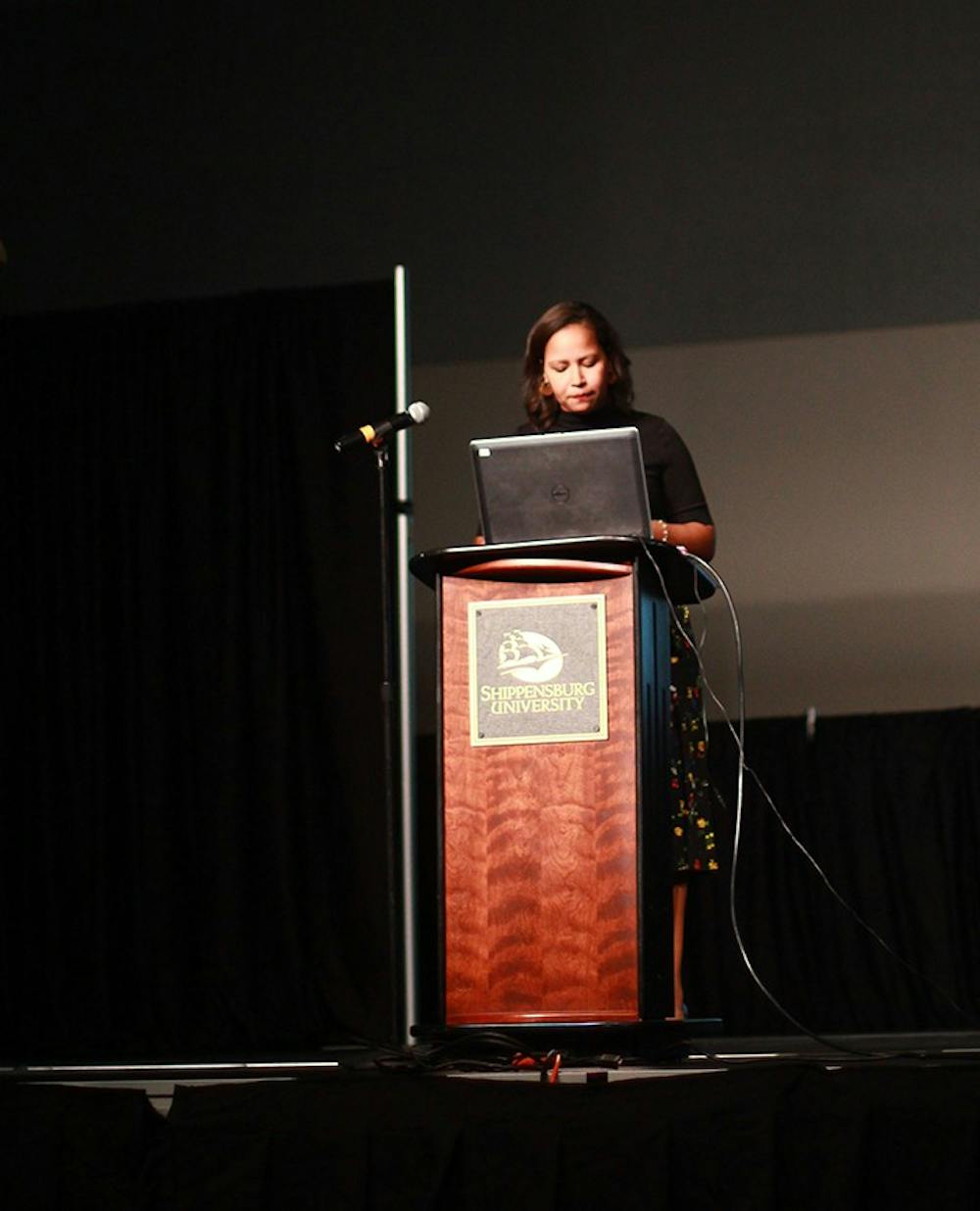Shippensburg University students filled the Ceddia Union Building (CUB) Multipurpose Room on Thursday evening to listen to Women’s History Month speaker and political strategist Jessica Byrd.
Byrd, founder of the Three Point Strategies political consulting firm based in Washington, D.C., spent her evening at SU educating students on politics, race and why being involved in the political system is important.
Byrd repeatedly acknowledged how important it is to be engaged in the world we live in, and how our engagement can bring awareness and change to the many issues our country is facing today.
The Chatham College for Women alumna was first introduced to politics by her mother, who worked the voting polls when Byrd was a little girl.
“I always like to say my mother cleared the path for me,” Byrd said of her mother’s influence on her career.
She used to ask her mother questions about the voting process when she was young, and as an adult she wanted to get back to asking questions again, Byrd said.
Byrd’s questions led to revelations that the United States was not as equal politically as it was demographically. Through her research, she discovered nationwide, white men hold most of the political power, leaving minorities underrepresented in the political realm.
“Are we really living in a country for justice for all?” Byrd questioned the audience.
Byrd concluded there are several structural barriers that block the path of civic engagement and discourage people from running for office and voting. These barriers include low paying government positions, expensive campaigns, the timing of the election system and gatekeepers who play a role in who gets to lead.
Byrd has made it her mission to overcome these barriers and get people, specifically women and people of color, to run for office and be engaged in the political system. She is a leader of Democracy in Color, which is focused on engaging voters, especially people of color. Byrd and her team also created a “report card” for the Democratic Party which revealed the party was not promoting a strong dialogue with voters.
“The fact that so many of them were mad at us showed that we were right,” Byrd said of the Democratic party leaders’ response to the report card’s revelations.
Byrd concluded her speech by asking the audience to get involved by reading, participating, listening, having important conversations offline and getting innovative. She expressed her belief that change for the future lied in each audience member.
“The heart of what’s possible is in this room.”





The Slate welcomes thoughtful discussion on all of our stories, but please keep comments civil and on-topic. Read our full guidelines here.